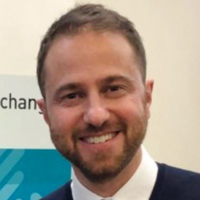TUESDAY, APRIL 28, 2020
Unforeseen shocks, like the current COVID-19 pandemic, the 2008-09 global financial crisis, or a natural disaster, can wreak havoc on the social and economic well-being of households, communities, states, and countries. The distribution of cash transfers to individuals and families has been used before as a policy to buffer the negative impacts and has increasingly become more common during this pandemic.
One of the central questions when considering this as a policy option is, should a cash transfer be universal—paid to everyone—in response to an external shock (e.g. financial, natural disaster, pandemic)? And why? There are no easy or right answers. Often this question leads to more questions: what is the overall objective of the transfer? What is economically feasible? What is fair? How will it interact with existing policies and safety nets? And how will this be implemented?
The Stanford Basic Income Lab’s program manager, Sarah Berger Gonzalez, recently reached out to partners in the basic income community to engage them on this question.

There’s a danger that in a crisis, everyone believes that whatever they believed beforehand is now confirmed, but, nonetheless, I do see universalistic cash transfers as a smart policy response to the economic damage. Unemployment insurance is reactive; people have to wait to be fired – but right now, you want people to be able to exit the workforce if they feel they’re at risk. You want to get money to people quickly, and that means looking to preventative rather than remedial measures. With any kind of targeted cash program, the concern is that we cannot quite foresee the different problems that will emerge in different families, and they are worth heading off in advance with broad-based cash transfers.
Finally, I think that a lot of big policy shifts happen as fixes in times of crisis – the crisis response model is true for the NHS after WWII and US Social Security in the depression – so it might be the case that aspects of policies getting implemented around the world right now have some staying power, and if you see universalistic policies as appealing for other reasons in the long run that might be something to keep in mind.

We should provide cash for everyone in response to a widespread external shock, regardless of income level. While targeting based on income may seem like a smart move, it carries significant risks in unintentionally leaving out people who should be included, particularly given how many may experience sudden income loss as a result of the crisis. As Obama administration economist Jason Furman put it when describing targeting support in the 2009 financial crisis response, “it’s really hard to get that right, and you’ll end up missing a lot of people that really need what you want.”

Pre-crisis, there were two prominent arguments in support for the universal feature of UBI. The first was about stigma. Those on benefits are highly stigmatized, so much so that some individuals in need prefer not to claim benefits at all. We have seen tendencies of demonizing recipients as scroungers and for politicians to instrumentalize popular resentment to undermine support for welfare. Normalizing public assistance, turning everyone into a beneficiary, seems to be a potentially powerful strategy for stabilizing income for all without leaving some vulnerable to welfare stigma. This argument does not seem as pertinent in the context of a public health crisis. People will likely understand that those who lose their jobs amidst the shelter-in-place are not responsible for being out of work and so it is unlikely that recipients of the checks would experience the kind of stigma they typically experience. Leaving some people out could still cause resentment, though at a time when we critically need to foster a spirit of solidarity and social cohesion.
The second argument about universality is generally about access. With targeted benefits, many individuals in need are left out. Universal benefits can radically increase access. I think this argument applies even more than usual in the context of COVID-19. We do not know with any level of precision who needs the cash. You might have been reasonably well off in 2018, when you last filed your taxes, and yet find yourself at risk in 2020. Your spouse might have lost their job, and you may be facing a bleak future yourself. And we can always just tax people back for it next year: those who end up doing well throughout the crisis can pay some of it or all of it back later.

The slow and disorganized roll-out of the enhanced unemployment benefits and direct cash transfers authorized by the CARES Act vividly illustrates why cash transfers designed to impact sudden, external shocks should be universal. Aid systems designed to test “deservingness” for purposes of alleviating poverty are inefficient and imprecise even in supposed good times.
When crises such as Covid-19 occur, such systems are essentially meaningless. Using year-old data to determine who is in financial need after such a crisis is pointless, for it obscures the fates of millions of Americans whose incomes have plummeted in the last few weeks. Means testing not only denies aid to such Americans but also delays payments for those still lucky enough to receive them. Tying additional aid to the unemployment system also blocks aid to Americans in need, as states’ unemployment systems are overwhelmed with claimants and guidance is non-existent for millions of self-employed Americans previously ineligible for such payments. In contrast, universal cash transfers – which can be “recaptured” from those whose incomes hold steady during the crisis by later income taxes – can be delivered swiftly and easily, leaving no American behind.

Experience has shown us time and again that the people who most need these cash payments are also the most likely to be left out of them, for a number of structural and institutional reasons, including policies and practices that have disproportionally disadvantaged communities of color. Regardless of whether the cash payments are universal or targeted, successful programs must compensate for these forms of exclusion to provide inclusive aid to families quickly and include consumer financial protections to ensure equal access and that the cash transfers will not be undermined by fees and predatory practices that would sap the savings and purchasing power that these cash transfers aim to provide. Aspen’s Financial Security Program, in collaboration with our Consumer Insights Collaborative members, will be hosting a webinar on May 13 related to these questions and the need for getting more money into the hands of people.

Covid-19 is generating uncertainty and anxiety but also opening up the space for innovations. For instance, the injection of helicopter money (HM) in downturns seems to become less of an “unconventional” monetary tool than previously assumed. But helicopter money is not a UBI – while temporary, HM is “money from heaven”, permanent UBI is “money from somewhere”. What we see emerging from a few countries is a hybrid between HM and UBI – a temporary, one-off universal cash injection not financed by printing cash, but still temporary in nature. If HM transitions into a UBI, it needs to recalibrate objectives away from just demand stimuli and in favor of social protection. In doing so, it should identify its place in the overall social protection system, and making choices within it. This would chiefly include what a UBI would substitute, at what cost, and the distributional implications of those choices.
There is longstanding debate on targeting versus universality, and the bottom line is that no program scores highly on all possible parameters of performance – coverage, adequacy, costs, and progressivity. So policymakers will likely seek the programs or set of measures that most closely attain an ‘optimal equilibrium’. What would optimal look like? It is inevitable that some form of societal weight – and with that historical, cultural and other factors shaping attitudes toward redistribution – will tilt preferences for what is optimal. Is it better to reach a few with more, or more with less? Can both be done? Is financing a given or a political choice? Generating the public space for debating such quandaries, listening to different perspectives, and recognizing trade-offs openly and transparently will be a key priority for ensuring political and economic sustainability of programs.
David Calnitsky is an Assistant Professor in the department of sociology at the University of Western Ontario. His research interests include: work, poverty, inequality, social theory, economic sociology, social policy, and gender and he has authored multiple publications on the Manitoba Basic Annual Income Experiment, or Mincome. Most recently, he wrote an article, Basic Income in a Pandemic and Beyond.
Jim Pugh is a co-founder of the Universal Income Project. He heads outreach for the organization, working to drive a larger popular narrative around basic income, connecting with stakeholders in new communities, and building strategic partnerships. He is also the founder and CEO of ShareProgress, a social-good startup that helps progressive organizations use the power of data and technology to grow their base and win their campaigns.
Juliana Bidadanure is an Assistant Professor of Philosophy at Stanford University and the Faculty Director of the Stanford Basic Income Lab. Her interests lie at the intersection of Philosophy and Public Policy. She has written on the value of equality, intergenerational justice and Universal Basic Income. She recently wrote The Political Theory of Universal Basic Income for the Annual Review of Political Science.
Miranda Perry Fleischer is a Professor of Law and Co-Director of Graduate Tax Programs at the University of San Diego. She joined the USD School of Law faculty in 2013 and has also taught at the University of Colorado Law School, the University of Illinois College of Law, and at NYU Law School (where she served as assistant editor of the Tax Law Review). She recently co-authored The Architecture of a Basic Income in the University of Chicago Law Review.
Sheida Isabel Elmi is Research Program Manager at the Aspen Institute’s Financial Security Program (FSP). She manages FSP’s Consumer Insights Collaborative, an effort across nine nonprofits to collectively understand and amplify data about the financial lives of low- and moderate-income households. She also supports research efforts related to employer-sponsored benefits and other topics connected to short- and long-term financial stability and security.
Ugo Gentilini is a Senior Economist with the Social Protection and Jobs Global Practice and the Global Lead for Social Safety Nets at the World Bank Group. Over the past 15 years, he worked extensively on the analytics and practice of social protection, including in relation to urbanization, economic crises, labor markets, subsidy reforms, fragility and displacement, resilience and disaster risk management, food security and nutrition, and human development. He most recently co-authored Exploring Universal Basic Income: A Guide to Navigating Concepts, Evidence and Practices.




















